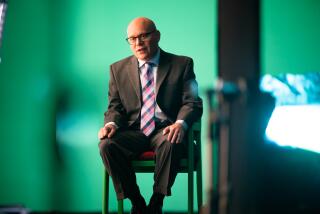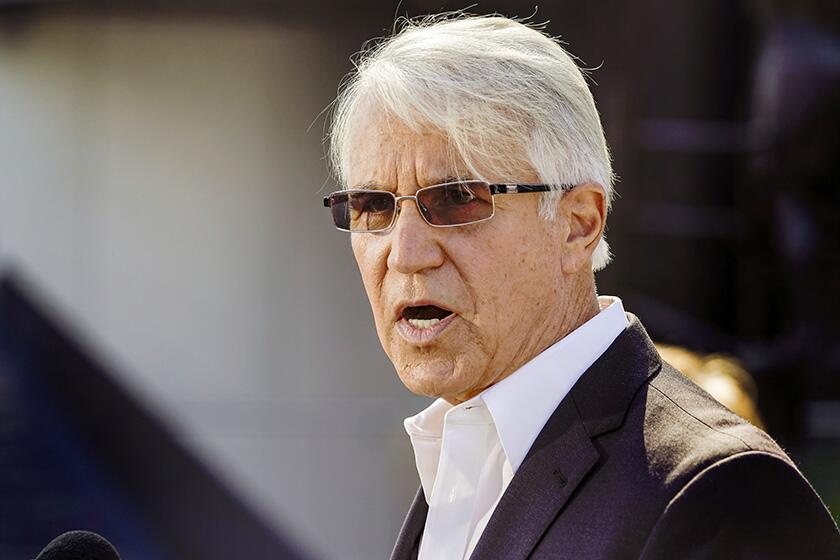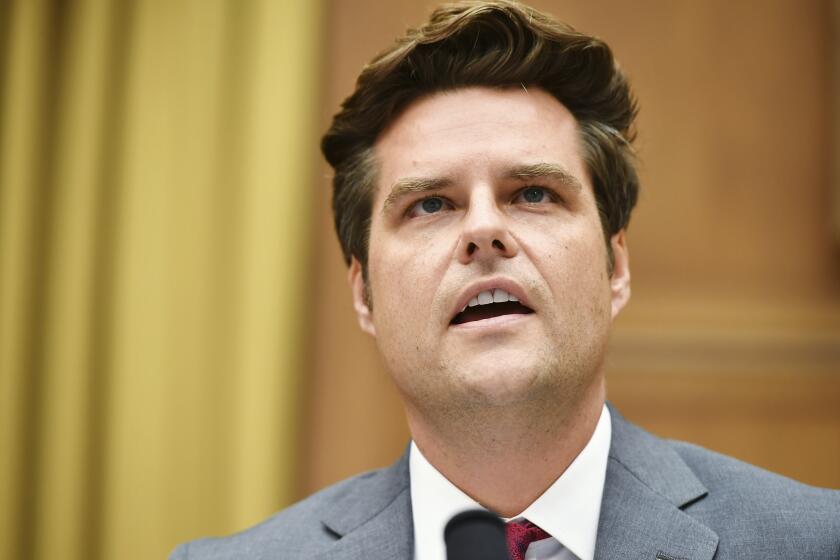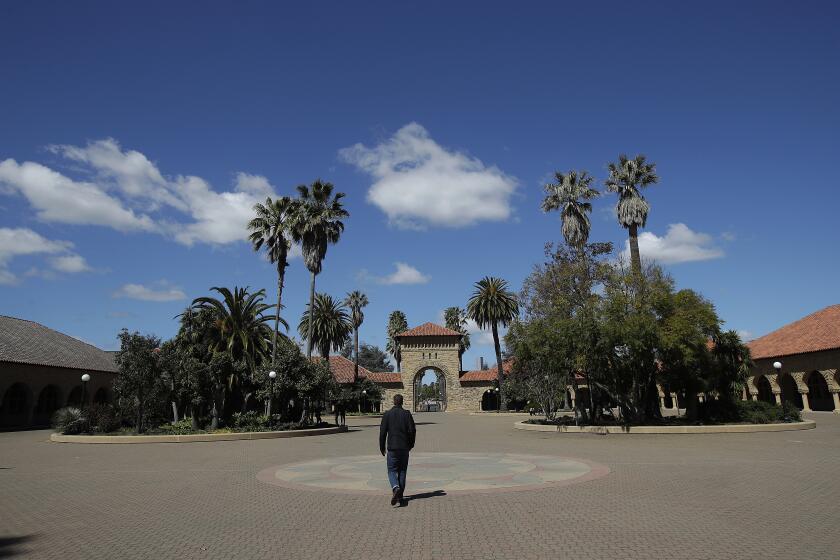Op-Ed: Separating parents from their kids at the border contradicts everything we know about children’s welfare
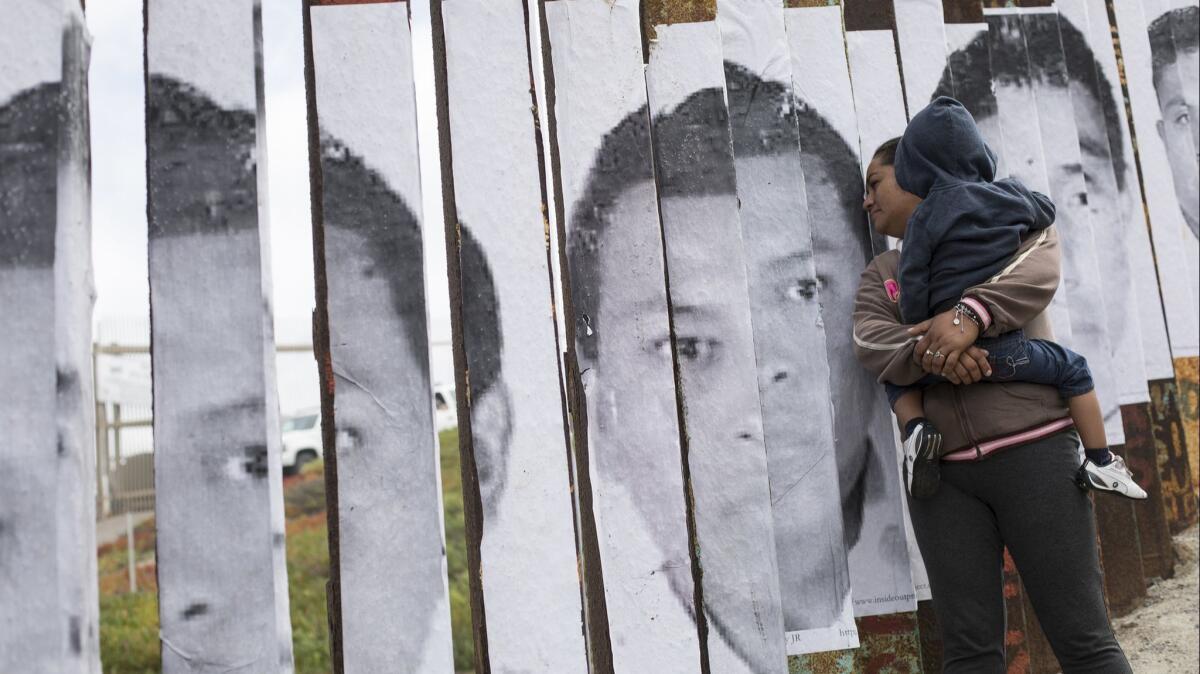
I’ve been a pediatrician for 30 years. I’ve cared for thousands of children, providing support for parents to encourage their babies’ development, and recommendations to guide them through the joys and challenges of parenting. I’ve helped navigate children and families through illness, developmental disabilities and life-threatening conditions. Recently though, I met a little girl in a border town in Texas who will forever stand out in my mind. Unlike the patients I’ve treated in my exam room, I was helpless to comfort her.
The little girl was a toddler, her face splotched red from crying, her fists balled up in frustration, pounding on a play mat in the shelter for unaccompanied children run by the Department of Health and Human Services’ Office of Refugee Resettlement. No parent was there to scoop her up, no known and trusted adult to rub her back and soothe her sobs. The staff members at the center tried their best, and shared my heartbreak while watching this child writhe on the floor, alone.
We knew what was wrong, but we were powerless to help. She wanted her mother. And the only reason she could not be with her mother was because immigration authorities had forcibly separated them when they crossed the border into the United States. The mother was detained, and the little girl was handed over to the shelter as an “unaccompanied” child.
Since October, the federal government has separated more than 700 children from their parents as they entered the United States, according to Office of Refugee Resettlement data reviewed by the New York Times. Most of these families have requested asylum. Officials at the Department of Homeland Security claim they act solely “to protect the best interests of minor children.” But the White House has vocally supported the idea of family separation as a deterrent to keep migrant families from the U.S. border.
On Friday, a San Diego federal court judge will hear directly from lawyers representing parents whose children have been taken from them. The American Civil Liberties Union will request a nationwide injunction to reunite hundreds of families and to stop future separations. Pediatricians have submitted affidavits in this case, challenging the government’s actions and sharing physicians’ perspectives on the toll the practice takes on children.
Studies overwhelmingly demonstrate the irreparable harm caused by breaking up families.
Studies overwhelmingly demonstrate the irreparable harm caused by breaking up families. Prolonged exposure to highly stressful situations — known as toxic stress — can disrupt a child’s brain architecture and affect his or her short- and long-term health. A parent or a known caregiver’s role is to mitigate these dangers. When robbed of that buffer, children are susceptible to learning deficits and chronic conditions such as depression, post-traumatic stress disorder and even heart disease. The government’s practice of separating children from their parents at the border counteracts every science-based recommendation I have ever made to families who seek to build, and not harm, their children’s intellectual and emotional development.
These parents are given two untenable options. They can return with their children to their home country and the conditions that forced them to flee in the first place. Or they can endure being detained sometimes halfway across the country from their children. Contact is often limited. The separation makes it hard for parents to provide support for the child’s asylum request. In some cases, parents have been deported, leaving a child behind in government custody.
The American Academy of Pediatrics has written to the secretary of the Department of Homeland Security — now Kirstjen Nielsen — on at least five occasions opposing the forced separation of parents and children at the border. More than 200 child welfare, juvenile justice and child development organizations signed a letter urging Nielsen to abandon any plans to systematically separate children from their families. Members of Congress have spoken out in opposition. And yet we know the practice continues.
As Friday’s hearing takes place in San Diego, we turn to the judicial system to right this wrong, for the sake of the little girl I saw suffering in Texas, and for the hundreds of other families torn apart by the country they turned to for refuge.
Dr. Colleen Kraft is the president of the American Academy of Pediatrics. She practices medicine in Mission Viejo.
Follow the Opinion section on Twitter @latimesopinion and Facebook.
More to Read
A cure for the common opinion
Get thought-provoking perspectives with our weekly newsletter.
You may occasionally receive promotional content from the Los Angeles Times.


